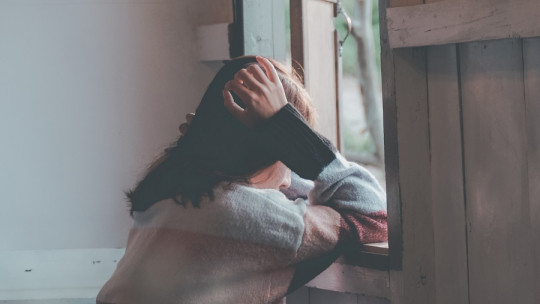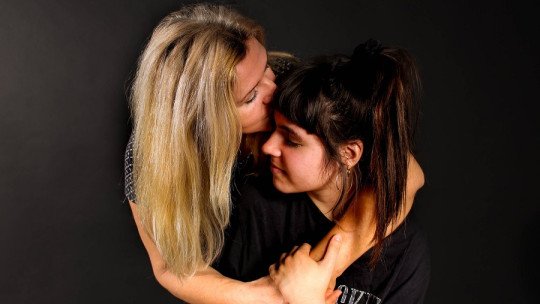What does it mean to play the victim? Why do we tend to use victimhood? Discover the main signs to detect victimizers and how to deal with it.

He victimhood It is the attitude or ability that people have to play the victim in front of others and obtain some benefits that can not only be harmful to the victimizing person, but also to those around them. That is why people who act as victims on many occasions must be detected to try to help visualize that this is a very harmful attitude both for themselves and for others.
What is victimhood?
He victimhood in psychology indicates those people who have a personality trait in which a person tends to recognize or consider themselves the victim of the negative actions of others. In many cases, victimized people seek to victimize themselves as a way to avoid various situations.
In many cases a victim personality You may avoid leaving your comfort zone, as you do not want to make difficult decisions or do what you need to do to improve your life from different perspectives. A victimizing person must change their perspective and see the various events in their life under their own responsibility and not attribute the blame to others.
Signs of a victimizing person
When a person goes to victimhood recurrently, in many cases they end up having an attitude in which playing the victim is identified through different signs. Among the most unique, we can highlight the following.
- Want to attract attention: Instead of seeking effective help or legitimate empathy, the victim seeks to arouse the pity of others and, to that point, confirm that they cannot solve the problems themselves. In many cases this victimist attitude It is reinforced from childhood when the child is overprotected by adults and grows up with the belief that they do not have the internal resources to respond to situations that hurt them.
- Does not assume its responsibilities: This point has a lot to do with the previous one, because someone who has a victim personality consciously avoids his role in the conflict. This avoids problems and prefers to remain in the role of victimhood.
- Accuses others of his misfortunes: The victimized people They cannot see conflict situations objectively because they believe that everyone is against them. Nobody thinks like that, nobody can put themselves in their place, while the reality is that they change the perspective in their favor to comfortably place themselves in the role of the victim.
- Constant complaints: This is your favorite activity because it is the best dynamic to justify yourself through your victimhood She exaggerates what hurts her, what bothers her, but she tries to make us believe that she did everything possible because things change, when deep down she knows that she is not strong and makes no effort to change her attitude towards what she doesn’t like. .
- They don’t want a solution: When someone with a victim personality resorts to seeking help for their problems, in many cases these people always see that each of the solutions proposed to them does not work. It is for this precise reason that people who act as victims will never be able to solve their problems, since they are really very comfortable in their role as victimizers.
- Resentment: Resentment and the inability to forgive others go hand in hand with victimized people Whether it is a friend, father or mother who is the victim, one of the most common traits in the profile of the emotional blackmailer or someone accustomed to victimhood is precisely the lack of forgiveness towards the people around them.

- Lack of assertiveness: Assertiveness is the ability to recognize praise and know how to express internal needs in front of others. In these cases, a victimized person cannot have this positive view of others or of themselves. On the other hand, the majority of victimhood phrases They will be related to putting the responsibility of this negativity on others and not on them.
- Lack of trust: Thinking that everyone is against him, victimhood It makes people who suffer from it suffer from a lack of confidence. For this reason they end up not trusting anyone around them.
- Pessimists and negatives: Negativity and pessimism are other of the most common traits of a victim personality This happens because by believing that everything bad is out of their control, they really only focus on this and end up resorting to chronic victimhood to reaffirm that things are really bad only for them.
A victim personality usually plays the victim to try to avoid responsibility for each of their actions. In many cases, people who suffer from this type of manipulative victimhood Both towards themselves and towards others they usually go through a bad time and are not aware that they have this type of negative attitude. Therefore, if you think that someone around you or you yourself is going through this situation, it is advisable to go to or recommend a professional psychologist.
Why is victimhood a trap?
Through the victimhood a person reinforces low self-esteem and insecurity, so it is easier to carry the “I am not happy” either “No one understands me“So even if you do something good through your own efforts or something important and positive happens to you in your life, you won’t appreciate it because you are speaking from the trap of “I’m a failure and something bad will surely happen to me later.“.
How to stop being a victimizing person?
Whoever assumes the role of victimhood For many years you will have to make a great effort to get out of there and find new points of view. In this process it is very useful to have the help of a psychotherapist and it is also important that the people around you radically change their position so as not to reinforce this victimizing attitude. According to professionals, victimhood in psychology can be worked on from the following aspects.
- Rationalize negativity: The person who can’t stop play the victim You have to learn to make an objective analysis of the reality around you: is everything so bad that I want to see it or is there something positive? Am I complaining about vice or are there really things I shouldn’t complain about?
- Take control of the situation: People with a victim personality They are used to taking problems out of context and have difficulty understanding that in many of them they also have the responsibility to assume. How much does it cost me to change this situation? If there is something I can’t change, how can I have a different attitude to the complaint?

- Stop all complaints: If, for one day, the person with a victimhood as a couple, in family or friendship, try not to complain about everything, you will notice that your suffering is not as great as you imagined. In most cases, letting situations flow without making a value judgment is a good idea to understand others and create constructive relationships.
- Take criticism as part of life: We can’t please everyone and we can’t pretend that human relationships are perfect. If someone criticizes me, instead of jumping on the defensive, I could ask that person exactly what they mean and why they think I didn’t do things right. Dialogue could open the door to new points of view, beyond the constant sensitivity and complaint. In this way the victimized people You will be able to visualize that each of the attitudes that occur in our lives can really be interpreted from other perspectives.
- Identify and challenge your limiting beliefs: Sometimes he manipulative victimhood It may arise because there are some painful memories from our past that make us believe that we are one way or another. Although these toxic and victimizing people do not know that they are harming others, in many cases this attitude full of victimhood is usually due to the fact that there are some beliefs that limit them and make them become defensive towards the people around them. . To leave these types of limiting thoughts behind, you will first have to identify them. When they are analyzed, the key will be to challenge them and test yourself against each one of them.
- Adopt an attitude of gratitude and positivity: Sometimes we don’t realize that we really have many more things to be grateful for than we imagine. For this reason, it is essential to try to see what we have achieved, the people we have next to us and our abilities. In addition, positive thinking will also be a good tool for combat victimhood that is in us. The reason for this is that when someone begins to victimize themselves, they are feeding the negative thoughts within themselves.
What can I do if someone is a victimizer?
Make him or her understand that he or she counts on your empathy and solidarity, but that you cannot solve the problems for him or her. We are no longer children and we no longer have protective parents who come to defend us; We ourselves are the owners of our destiny and the person who lives with someone who is used to complaining about everything should do their own exercise of walking away when they see that the other is taking a passive position. The person who takes refuge in victimhood You will gradually understand that you have to take charge of your own life.








